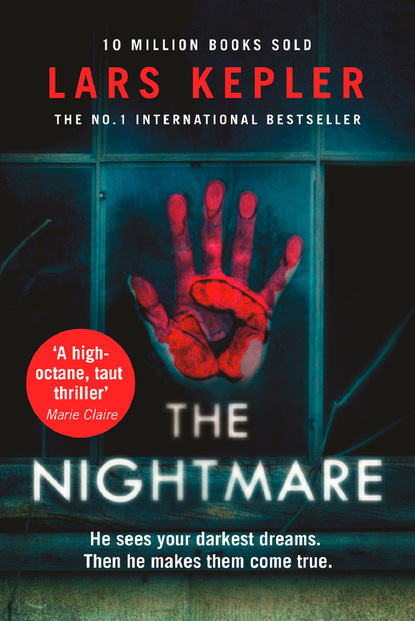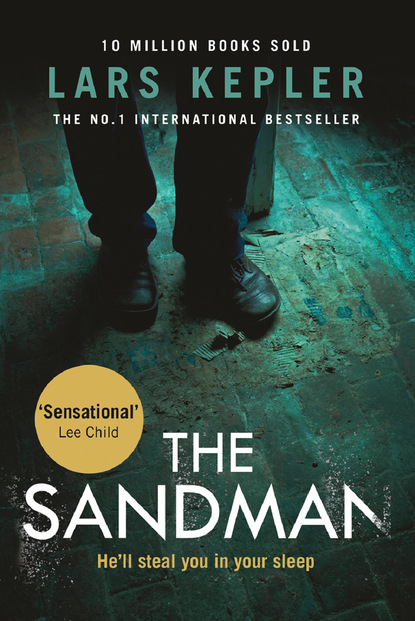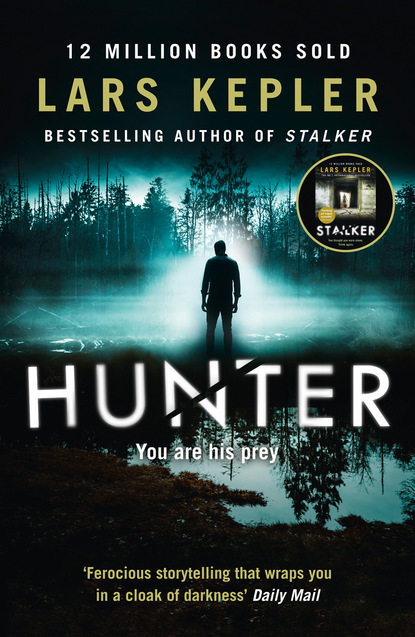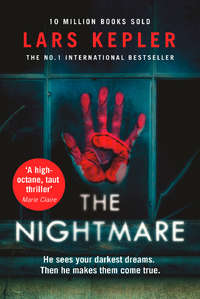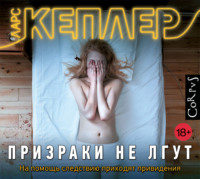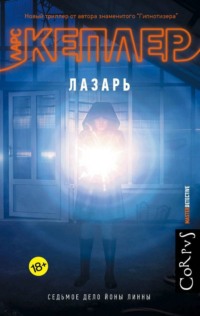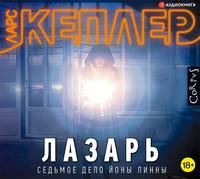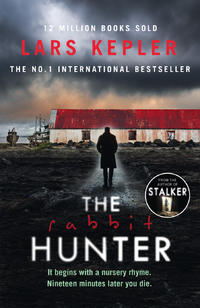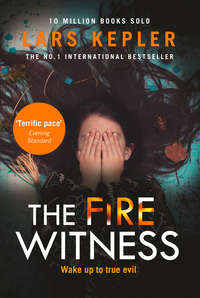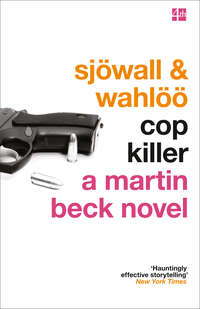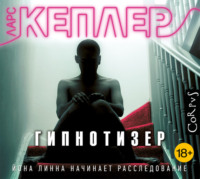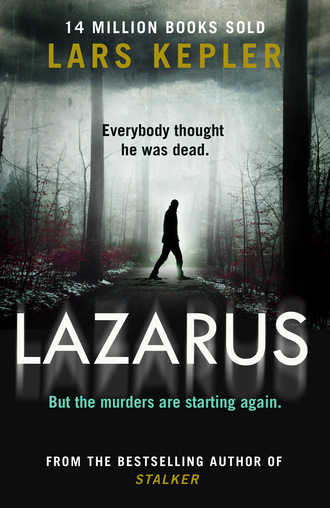
Полная версия
Lazarus
‘But that was more than body-parts … this is personal,’ Joona says, then falls silent.
There’s a family grave in Stockholm with the names Summa Linna and Lumi Linna on the headstone, but the urns under the ground don’t contain their ashes. The deaths of Joona’s wife and daughter were fabricated, and they lived on for many years in a secret location with new names.
‘Let’s go down to the kitchen and heat that soup up,’ Valeria says after a while.
‘What?’
She gives him a hug, and he wraps his arms round her and rests his cheek against her head.
‘Let’s go and eat,’ she repeats quietly.
They go down to the kitchen and she takes the soup they made earlier out of the fridge. She puts the pan on the stove and turns the hotplate on, but when she switches on the light in the extractor fan Joona walks over and turns it off.
‘What’s happened?’ Valeria asks.
‘Summa’s grave has been vandalised and …’
Joona falls silent, turns his face away and she sees him wipe tears from his cheeks.
‘You’re allowed to cry, you know,’ she says gently.
‘I don’t honestly know why this upsets me so much … someone has dug up her grave and taken her skull back to Oslo with him.’
‘God,’ she whispers.
He goes and stands by the window and looks out at the greenhouses and forest. Valeria can see that he’s closed the curtains in the living room, and there’s a knife lying on the old dresser.
‘You know Jurek Walter’s dead,’ she says in a serious voice.
‘Yes,’ Joona whispers, closing the curtains in the kitchen window.
‘Do you want to talk about him?’
‘I don’t think I can,’ he says simply, and turns towards her.
‘OK,’ she replies in a composed voice. ‘But you don’t have to keep anything from me, I can cope with listening, I promise … I know what you did to save Summa and Lumi, so I understand that he’s a monster.’
‘He’s worse than anything anyone could ever imagine … he digs his way inside of you … and leaves you hollowed out.’
‘But it’s over now,’ Valeria whispers, and reaches out towards him. ‘You’re safe now, he’s dead.’
Joona nods.
‘This has dragged it all up again … it’s like I could feel his breath on the back of my neck when I heard what had happened to Summa’s grave.’
Joona returns to the window and peers out between the curtains. Valeria looks at his back in the gloom of the kitchen.
They sit down at the table and she asks him to tell her more about Jurek Walter. Joona puts his hands on the table to stop them shaking and says in a low voice:
‘He was diagnosed with … non-specific schizophrenia, chaotic thinking, and acute psychosis characterised by bizarre and extremely violent behaviour, but that doesn’t mean a thing … he was never schizophrenic … the only thing that diagnosis shows is how terrified the psychiatrist who conducted the evaluation was.’
‘Was he a grave-robber?’
‘No,’ Joona says.
‘There you are, then,’ she says, and tries to smile.
‘Jurek Walter would never bother with trophies,’ he says heavily. ‘He wasn’t a pervert … but he had a passion for ruining people’s lives. Not killing them, not torturing them – not that he would have hesitated to do either in an instant, but to understand him you have to realise that he wanted to destroy his victims’ souls, extinguish the spark inside them …’
Joona tries to explain that Jurek wanted to take everything away from his victims, then watch as they carried on living – going to work, eating, watching television – until the terrible moment when they realised that they were already dead.
They sit in near-darkness as Joona tells Valeria about Jurek Walter. Even though he was the worst ever serial killer in the Nordic countries, the general public know nothing because all information about him has been declared highly classified.
Joona explains how he and his partner Samuel Mendel began to close in on Jurek Walter.
They took turns to keep watch outside one particular woman’s home. Her two children had gone missing in circumstances that were reminiscent of a number of other victims in the case.
It was as if the earth had opened up and swallowed them.
The pattern that had emerged showed that a disproportionate number of missing people in recent years came from families where someone else had already gone missing.
Joona falls silent and Valeria watches as he knits his hands together in an attempt to hold them still. She gets up, makes some tea and fills two mugs before sitting down again and waiting for him to go on.
‘The weather had been mild for two weeks, it had started to thaw, but that day it started to snow again,’ he says. ‘So now there was fresh snow on top of what was already there …’
Joona has never spoken about those last hours, when Samuel arrived to relieve him.
A thin man had been standing at the edge of the forest, staring up at the window where the woman whose children had gone missing was lying asleep.
The man’s face, so thin and wrinkled, was completely impassive.
Joona found himself thinking that the very sight of the building seemed to give the man a feeling of pleasurable calm, as if he were already dragging his victim off into the forest.
The thin figure did nothing but watch before turning away and vanishing.
‘You’re thinking of the first time you saw him,’ Valeria says, putting her hand over his.
Joona looks up and realises that he’s stopped talking, and nods before telling her that he and Samuel had got out of the car and followed the fresh trail of footprints.
‘We ran along an old railway line, into Lill-Jans Forest …’
But in the darkness among the trees they suddenly lost the man’s trail. With nothing else to go on, they turned to head back.
As they were retracing their steps along the railway track, they saw that the man had left the rails and had set off into the forest instead.
Because the ground beneath the fresh snow was wet, his shoes had left dark prints. Half an hour before they had been white, impossible to see in the weak light, but now they were as dark as granite, unmistakable.
As they headed through the forest they heard a whimpering, moaning sound.
It sounded like someone crying from the very depths of hell.
Between the tree trunks they spotted the man they had been pursuing. The ground was dark with freshly dug soil around a shallow grave. A filthy, emaciated woman was trying to get out of a coffin. She was sobbing as she struggled, but every time she almost got out, the man shoved her back down again.
They drew their pistols and rushed in, managed to get the man on the ground and cuffed his hands and ankles.
Samuel was sobbing as he called the emergency control centre.
Joona helped the woman out of the coffin and put his coat round her. As he held her and told her that help was on its way, he suddenly caught sight of movement between the trees. Some of the branches were moving, the snow on them falling softly to the ground.
‘Someone had been standing there watching us,’ he says quietly.
The fifty-year-old woman survived, despite having spent almost two years in the coffin. Jurek Walter had appeared from time to time, opening the coffin and giving her water and food. She had gone blind, was terribly emaciated, and had lost her teeth. Her muscles had withered away, and she was deformed by sores. Her hands and feet were both frostbitten.
At first the doctors thought she was merely traumatised, but it turned out she had suffered severe brain damage.
Large parts of the forest were cordoned off that same night. The following morning a police tracker-dog led them to a location two hundred metres from where the woman had been buried. Excavations uncovered the remains of a man and a boy, buried in a blue plastic barrel. It was later confirmed that they had been buried four years earlier, but hadn’t survived for long despite the fact that the barrel was supplied with air through a tube.
Joona can see that Valeria is shaken; all the colour has drained from her face and she’s got one hand clasped over her mouth.
She’s thinking back to Joona’s description of the first time he saw Jurek Walter, standing in the snow beneath the window of his next victim. It reminds her of the man she saw on Friday, at the edge of the forest next to the greenhouse. She should probably tell Joona about that, but doesn’t want to give him any reason to think that Jurek is still alive after all.
7
A prosecutor took over responsibility for the preliminary investigation once Jurek had been arrested, but Joona and Samuel led the interviews with him, from the decision to remand him in custody until the main hearing.
‘It’s hard to understand, but somehow Jurek Walter got inside the head of anyone who came close enough,’ Joona says, meeting Valeria’s gaze. ‘There’s nothing supernatural about it, I’d put it down to a sort of cold awareness of human weakness … he would pick up on something fundamental that meant you completely lost any ability to defend yourself.’
Jurek Walter confessed to nothing during the whole of his time in custody. He didn’t claim to be innocent either, just spent most of his time on a philosophical deconstruction of the concepts of crime and punishment.
‘I only realised during the final hearing that Jurek’s plan was to get me or Samuel to say that there was a possibility that he was innocent … that he had merely stumbled upon the grave and was trying to help the woman out when we arrested him.’
One evening when Joona and Samuel were running together, Samuel had raised the hypothetical question of what would have happened if anyone other than Jurek had been beside the grave when they arrived.
‘I can’t help thinking about it,’ Samuel said. ‘That anyone who had been standing by the grave at that moment would have been prosecuted.’
It was true that there was a lack of concrete evidence, and that it was mostly the circumstances of the arrest and lack of any adequate alternative explanation that had supported the prosecution.
Joona knew Jurek was dangerous, but had no idea at the time just what level of danger they were dealing with.
Samuel Mendel became more withdrawn, he couldn’t handle it, couldn’t bear to be in close proximity with Jurek, he said he felt dirty, that his soul was being poisoned.
‘Almost against my will, I find myself saying things that suggest he could be innocent,’ Samuel said.
‘He’s guilty … But I think he’s got an accomplice,’ Joona replied.
‘It all points to a lone madman who—’
‘He wasn’t alone at the grave when we got there,’ Joona interrupted.
‘Yes, he was, that’s just him manipulating us, because that could mean you saw the real perpetrator fleeing into the forest.’
Joona has thought about the last conversation he had with Jurek before the main hearing many times.
Jurek Walter was sitting on a chair in the heavily guarded interview room, his lined face staring down at the floor.
‘It’s completely irrelevant to me if I’m found guilty, even though I’m innocent,’ he said. ‘I’m not afraid of anything, not pain … not loneliness or boredom. The court’s going to go along with the prosecutor … and my guilt is going to be regarded as proven beyond reasonable doubt.’
‘You’re refusing to defend yourself,’ Joona says.
‘I refuse to get bogged down in technicalities, seeing as digging a grave and filling it in are basically the same thing.’
Obviously Joona realised he was being manipulated, that Jurek Walter needed him on his side in order to be released. That was why he was trying to sow seeds of doubt. Joona knew what Jurek was up to, but at the same time couldn’t ignore the fact that there was actually a crack in the case.
‘He thought he’d won you over to his side,’ Valeria says in a frightened voice.
‘I think he took it as a promise.’
During the main hearing Joona was called as a witness to talk about the arrest.
‘Is it possible that Jurek Walter was in fact trying to rescue the woman from the grave?’ the defence lawyer asked.
An internal compulsion to agree with him was nudging Joona towards the edge. Such a possibility was obviously within the bounds of plausibility. Joona began to nod in response, but stopped and forced himself to go back to the exact memory of the appalling scene in the forest clearing, where Jurek Walter was unquestionably shoving the woman back into the grave every time she tried to crawl out.
‘No … he was the person keeping her captive in the grave. He’s the one who killed them all,’ Joona replied.
After due consideration, the Chair of the Court declared that Jurek Walter was being sentenced to secure psychiatric treatment with specific restrictions applied to any eventual parole proceedings.
Before he was taken out of the court, Jurek Walter turned towards Joona. His face was covered with tiny wrinkles, and his pale eyes looked oddly empty.
‘Now Samuel Mendel’s sons are going to disappear,’ Jurek said calmly. ‘And Samuel’s wife Rebecka will disappear. But … No, listen to me, Joona Linna. The police will look for them, and when the police give up, Samuel will go on looking. And when he eventually realises that he’ll never see his family again, he’ll kill himself …’
Light was playing through the leaves in the park outside, casting quivering, transparent shadows across his thin figure.
‘And your little daughter,’ Jurek Walter went on, looking down at his fingernails.
‘Be careful,’ Joona said.
‘Lumi will disappear,’ Jurek whispered. ‘And Summa will disappear. And when you realise that you’re never going to find them … you’re going to hang yourself.’
He looked up and stared directly into Joona’s eyes. His face was quite calm, as if things had already been settled the way he wanted.
‘I’m going to crush you into the dirt,’ he said quietly.
Joona goes over to the curtains and looks out at the darkness, where the branches of the birch trees are blowing in the wind.
‘You’ve never told me much about your friend Samuel,’ Valeria says.
‘I’ve tried, but …’
‘It wasn’t your fault his family went missing.’
Joona sits down again and looks at her with moist eyes.
‘I was sitting at home, at the kitchen table with Summa and Lumi … we’d just made spaghetti and meatballs when Samuel phoned … he was so upset that it took a while for me to realise that Rebecka and the boys weren’t at the house on Dalarö that they’d set off for several hours earlier … he’d already been in touch with the hospitals and the police … he tried to pull himself together, tried to take deep breaths, but his voice broke when he asked me to check that Jurek Walter hadn’t escaped.’
‘Which he hadn’t,’ Valeria said breathlessly.
‘No, he was locked in his cell.’
All traces of Rebecka and the boys stopped on the gravel track five metres in front of their abandoned car. Tracker dogs couldn’t pick up any scent. For two months the police conducted a thorough search of the forests, roads, buildings, rivers and lakes. After the police and volunteers had given up, Samuel and Joona carried on looking on their own, without once discussing what they feared most.
‘Jurek Walter had an accomplice, and he took them,’ Valeria says.
‘Yes.’
‘And then it was your turn.’
Throughout this period Joona kept watch over his family, went with them everywhere, but obviously he realised that wasn’t going to be enough, not long-term.
Samuel stopped looking and returned to work a year or so after his family went missing. He lasted three weeks before, having finally given up hope, he drove to his summerhouse, went down to the beach where his sons used to swim, and shot himself in the head with his service pistol.
Joona tried talking to Summa about moving, about starting a new life, but she couldn’t appreciate just how dangerous Jurek Walter was.
To begin with he tried to find a way out for all of them together. Perhaps they could get new identities and live quietly in some distant country.
He called his old lieutenant on an encrypted line, but he was aware that wouldn’t be enough. New, secret identities wouldn’t be 100 per cent secure. They would merely buy them a period of grace.
‘But why didn’t you just take off together?’ Valeria whispers.
‘I would have given anything to be able to do that, but …’
When Joona realised what had to be done, it became an obsession. He started to work out a plan that could save all three of them.
There was one thing that was more important than him being together with Summa and Lumi.
Their lives were more important.
If he took off or disappeared with them, that would be a direct challenge to Jurek’s accomplice to start looking for them.
And if you look for people who are trying to hide, sooner or later you always find them, Joona knew that.
So they mustn’t be given any cause to look, he reasoned. That was the only sure way of not being found.
Which left him with one solution: Jurek Walter and his shadow needed to believe that Summa and Lumi were dead. Joona was going to arrange a car accident and make it look like they were both killed.
‘But why not all three of you?’ Valeria exclaimed. ‘You could have pretended that you were in the car as well, that’s what I’d have done.’
‘Jurek would never have believed that … My loneliness was what tricked him, the fact that I lived alone for year after year … No one would be able to manage that, not without eventually being lulled into a false sense of security and giving in to the temptation to see their family.’
‘So you thought you were being watched by the shadow the whole time.’
‘I was,’ Joona says in a hollow voice.
‘We know that now, but had you ever seen anyone?’
‘No.’
Now that it’s all been over for a couple of years, Joona knows he did the right thing. They all paid a high price, but it saved Summa and Lumi’s lives.
‘Jurek’s twin brother Igor was helping him all along,’ Joona says. ‘It was appalling … he had no life of his own, he was so mentally traumatised that his only purpose in life was to obey Jurek.’
Joona falls silent and thinks of the scars on Igor’s back, evidence of a lifetime of abuse from a razor strap.
When Jurek escaped after fourteen years in isolation, he carried on with his plan as if nothing had happened.
A lot of people lost their lives during those terrible days when Jurek Walter was free.
‘But both Jurek and his brother are dead now,’ Valeria points out.
‘Yes.’
Joona remembers the moment he shot the brother three times in the heart from close range. The bullets went right through his body, and Igor was thrown backwards into a gravel pit. Even though Joona knew Jurek’s twin brother had to be dead, he still shuffled down the steep slope to make absolutely sure.
Saga Bauer shot Jurek Walter and saw his body get carried away down a river and washed out to sea.
By the time Joona was finally reunited with his wife Summa, she was dying of cancer. He took her and their daughter Lumi to a house in Nattavaara, in the far north of Sweden. The little family had six months together. When Summa died, they buried her where her grandmother grew up, in Purnu in Finland.
It wasn’t until a year later that Joona finally dared to believe it was really over, when Saga found the remains of Jurek’s body, and the fingerprints and DNA analysis confirmed that it was definitely him.
It was as if Joona could finally breathe again.
For all those involved, the grief and wounds from those years will always be there. Saga Bauer hasn’t been the same since she went undercover to investigate Jurek Walter. She’s become darker, and sometimes Joona can’t help thinking that Saga’s trying to run away from her fate.
8
Saga Bauer is running fast across the old Skansbron through the damp shadows of the newer bridges up above.
Heavy traffic is thundering past her.
She lengthens her stride as she approaches the end of the bridge.
Her sports top is dark with sweat across her chest.
Almost every day she runs all the way to Gamla Enskede after work and collects her half-sister Pellerina from school.
Saga has reconnected with her father after a rift that started when she was a teenager. Though the worst of the misunderstandings have been sorted out now, Saga is finding it hard to slip back into being someone’s daughter again. Maybe they’ll never be able to patch things up completely.
Saga speeds up as she passes beneath the echoing viaduct carrying Nynäsvägen and the railway lines.
She’s muscular, like a ballet dancer, and beautiful in a way that catches people’s attention. Her long blond hair is plaited with colourful ribbons, and her eyes are strikingly blue.
Saga Bauer is an Operational Superintendent with the Swedish Security Police, but this autumn her boss has made her write reports and take part in turgid meetings about cooperation between the police in Sweden and the USA. In order to avoid open disagreement and internal criticism, it has been decided to declare the collaboration a great success. Amongst other things, both Saga Bauer and Special Agent López have been forced to become friends on Facebook.
Saga passes the dismal-looking sports hall and carries on into the old garden suburb, then sprints the last stretch before she gets to Enskede School.
Dust is flying up from the football pitch, drifting through the tall chain-link fence.
Pellerina is twelve now, but isn’t allowed to go home on her own after school. She has to stay behind and participate in after-school activities until she’s picked up.
Pellerina has Down Syndrome, and was born with Fallot’s Tetralogy, a combination of four different heart defects that prevent blood getting to her lungs. She had a shunt installed when she was four weeks old, and had to undergo serious heart surgery before her first birthday.
She has learning difficulties, but is able to attend a regular school with the help of specially trained assistants.
Saga’s pulse-rate and breathing calm down as she walks round the main school building and approaches the Mellis out-of-school club. She can see her little sister through the ground-floor window. Pellerina looks happy, she’s jumping about and laughing with two other girls.
Saga opens the front door, walks through the cloakroom and takes her shoes off beside the line of tape on the floor, then goes into the club. She can hear music from the dance and yoga room, and stops in the doorway.
A pink shawl has been draped over a lamp. The bass of the music is making one of the windows rattle, and the paper snowflakes stuck to it seem to dance.
Saga recognises Anna and Fredrika from her sister’s class, they’re both a head taller than Pellerina.
They’re all barefoot. Their sausagy socks are lying in the dust beneath one of the chairs. They’re standing in a row in the middle of the floor, counting themselves in, then wiggling their hips, taking a step forward, clapping their hands and spinning round.
Pellerina is smiling broadly as she dances, unaware of the string of snot hanging from her nose. Saga can see she’s doing it well, she’s learned all the moves, but she’s a bit too enthusiastic, jutting her hips out more than the other two girls.
Anna turns the music off. Out of breath, she tucks a lock of hair behind her ear and claps her hands.
From her vantage point over by the door, Saga sees the two girls exchange a look above Pellerina’s head, and Fredrika pulls a moronic face, which makes Anna laugh.
‘Why are you laughing?’ Pellerina asks, still panting for breath as she puts her thick glasses back on.


